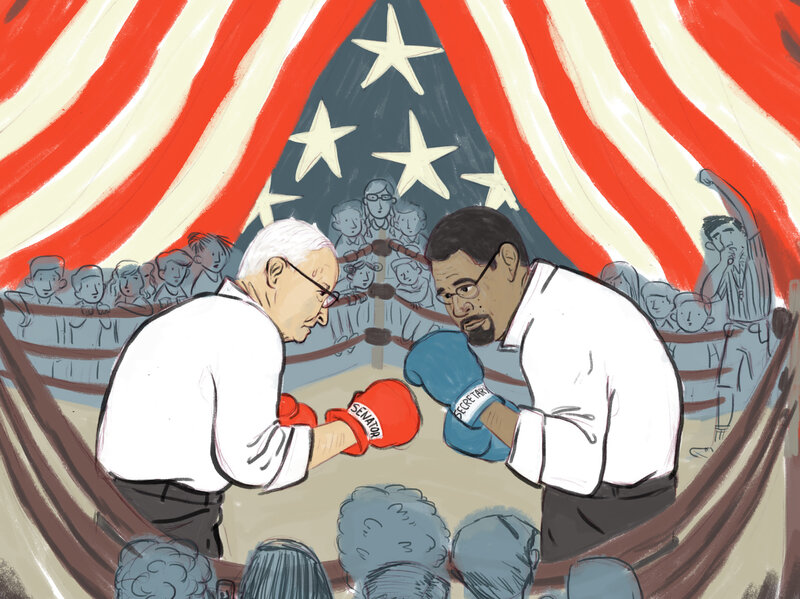The 'Intolerable' Fight Over School Money

LA Johnson/NPR
"This is an intolerable situation," Sen. Lamar Alexander said last week in a heated speech on the Senate floor.
The Tennessee Republican is chairman of the Senate's education committee, and he's furious with the Education Department. He even gave states some remarkable advice:
"If the regulations are not consistent with the law, I don't believe [states] should follow them," he said. "If the department persists, then the state should go to court to sue the department."
Things could get even more heated today as Alexander, himself a former education secretary, hosts a Senate hearing to spotlight his frustration with the current secretary, John B. King Jr.
Why is he so angry?
The easy answer: Title I. That's the $15 billion the federal government sends to districts to help schools that serve lots of low-income students.
But there's nothing easy — or simple — about this fight.
Alexander and King disagree on how to enforce the new law governing Title I. It says that, to get federal money, districts have to prove a few things — among them, that they're using state and local dollars to provide roughly the same services to kids in poor and non-poor schools alike.
"Basically, schools within a school district have to be similar," says Liz King, director of education policy at the Leadership Conference on Civil and Human Rights. "The idea here is that if they're not similar, then these federal dollars are just going to fill in gaps."
Everyone agrees that Title I dollars are not supposed to gap-fill. They're meant to be extra — the technical term is "supplemental" — for low-income kids who need them most. What the sides don't agree on is how districts prove they're not just filling gaps and that state and local resources are being spread fairly.
Everyone agrees that Title I dollars are not supposed to gap-fill. They're meant to be extra — the technical term is "supplemental" — for low-income kids who need them most. What the sides don't agree on is how districts prove they're not just filling gaps and that state and local resources are being spread fairly.
The current system's not fair, says Secretary King. "What we see, as we look around the country, is districts where they're actually spending significantly more in their non-Title I schools than they're spending in their Title I schools."
The Teacher Salary Gap
Nora Gordon, of Georgetown University, studies Title I and says much of that spending gap between poor and non-poor schools comes The 'Intolerable' Fight Over School Money : NPR Ed : NPR:
